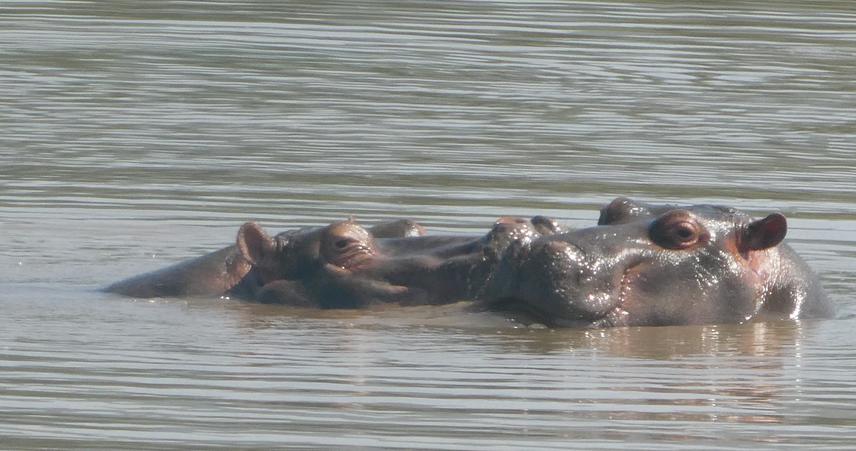Selamawit Negassa Chawaka
Fresh water biodiversity is conservation priority in recent decades. Yet they are experiencing declines than the terrestrial biodiversity due to human activities such as habitat degradation. Conservation efforts for freshwater biodiversity are constrained by the fact that most of the species in diverse communities and their status is poorly known. This is particularly serious in tropical countries like Ethiopia where biodiversity is both rich and highly threatened. Wetlands in southwestern Ethiopia are biodiversity hotspot that provides many ecosystem services to humanity and breeding ground for species of global concern. However, they are continuously degrading due to human activities. As a result, their biodiversity is under high pressure. Therefore, it is clear that collectively we must work quickly to conserve the biodiversity and their habitat.

Hippo's at Haro wetland
In-depth biodiversity assessment of wetland and their current status, informed by training and international best management practice is crucial to develop biodiversity conservation strategies and create awareness on sustainable wetland use. Moreover, it helps to accurately predict extinction rate of freshwater biodiversity. Thus, the main objective of this project is to conduct in-depth wetland biodiversity assessment and to create awareness for conservation planning and sustainable wetland use in southwestern Ethiopia. The specific objectives are: 1) to conduct in-depth biodiversity assessment in wetlands of southwestern Ethiopia, 2) to identify the current status of wetland biodiversity and flag ship species in these wetlands 3) to create awareness for local communities living around the wetland on sustainable wetland use 4) to prioritize and plan conservation action for wetland species.
To achieve these objectives, assessment of biodiversity including large mammals, reptiles, amphibians, birds, insects, macroinvertebrates, fish and vegetation will be conducted in two wetlands of southwestern Ethiopia. The number of species as well as the abundance of each particular species will be recorded at each site. The status of all identified taxa will be determined per IUCN list. Training and sensitization workshop on sustainable wetland use will be given for local community to involve them in conservation planning.